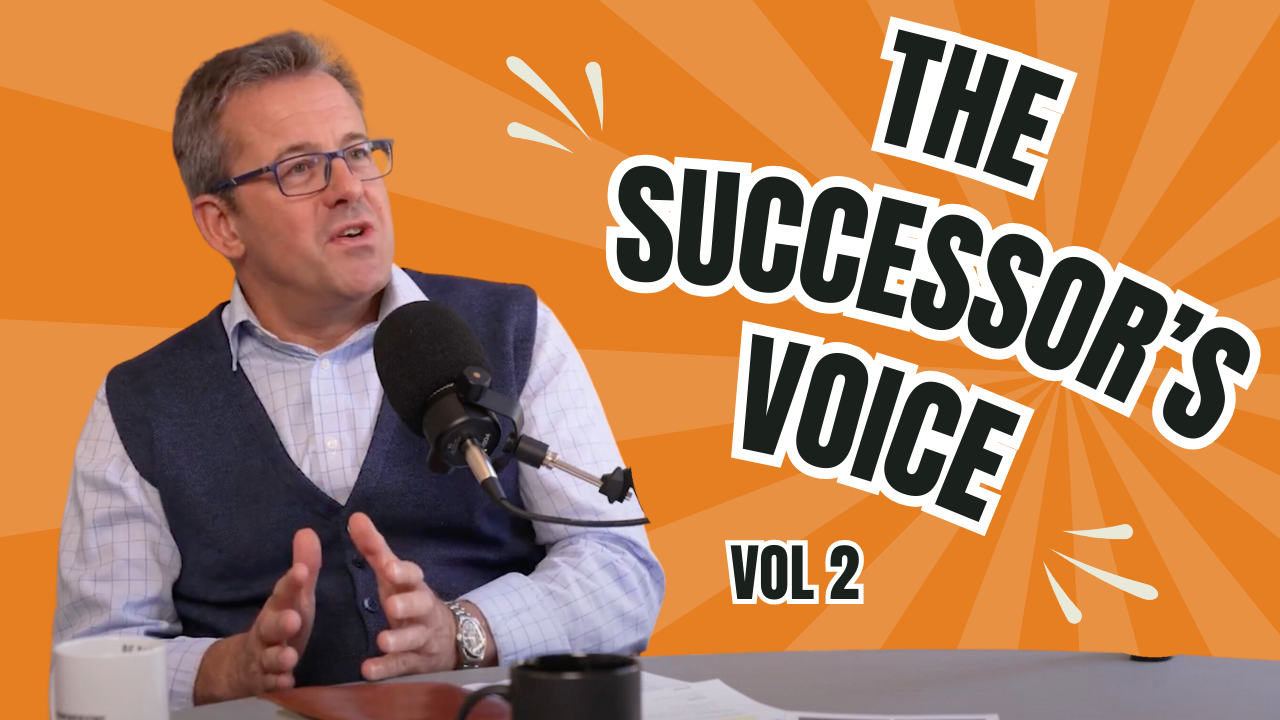
The year 2025: drift or mastery?
A successor to a family-in-business well known to me, recently announced that his father is ‘returning to the Board’ after a significant interregnum ‘in retirement’. My first reaction was one of surprise and - on hearing the successor’s decision to step down from his non-executive position on the Board - despair.
My thoughts went to his significant efforts to attain the position and the work completed to steer the business through the pandemic and out the other side. It seemed that all his careful ‘career management’ and progression had come to a premature end.
This brought home to me the truism: as successors, our career progression is often governed by the capricious whims of our relatives. A returning father, jealous siblings, scheming relatives, unhelpful (or absent) guidance, an unwillingness to support leadership, oftentime upset even the best-formed career plans and expectations.
The American commentator, Walter Lippman, wrote of the career as ‘well-made road’. For him the individual pursuing a career defines ‘long-term purpose’, sets standards of professional behaviour and cultivates a sense of responsibility.
All well and good - but for successors there is more to the making of the road: the demonstrated courage to change course even as we are bound by ownership, and the availability of independent and unvarnished observation of us and our decisions, or - simply put - someone to talk to.
As we face into yet another year, change in the calendar prompts reflection on what we have achieved, where we seem to be headed and goals to get us there. With the aforementioned upsets to a career, what additional thinking and planning can we successors do at this time?
Conventional wisdom demands the setting of one or more resolutions; as successors we know to be resolute answers better. For non-successors long-term plans can include a change in employer; for successors this - usually - is not on the table. It does appear that the potential to re-imagine presented by the dark of January, for us appears less than the norm.
Drift or Mastery?
Yet, as you recover from your holiday excess, what might you do to fully plan for and anticipate the year ahead? Chances are, things will not progress as expected, with the uncertainty of change the only certainty.
As you consider the next twelve months, a place to start may be found in your consideration of the question: what if not? What would you do in the event your role needed to change in response to an unforeseen decision by a relative?
In the case of the successor above, he will re-focus his energies as an executive in another part of the family enterprise, where I know he will do well.
This switch may not be open to you, although those with executive contribution usually have more options. Those of us who chose the ownership route to contribution, will have less options when the above question is asked.
We need to widen our gaze even as we require accurate and unvarnished assessment of our worth. This then is where you should concentrate your efforts, with consideration of the questions: do I have a mentor, and —if not — where might I find one?
At times of career upset, unforeseen events (such as a returning relative) or our own re-evaluation, the availability to us of another with whom we can tease though options and test decisions is proven to be an effective resource for us to progress.
This, then, is your second remedy, the allocation of time to locate and engage an individual whom is available, independent (not your banker nor your lawyer) and above all, objective. Professional surveys indicate a take-up of 40% of family leaders making use of a mentor. This appears low; if you are on the wrong side of this percentage, I suggest you give the issue another look.
To find a suitable individual you will need to network, to participate in relevant family business or industry organisations or undertake direct enquiries of those known to you. If this latter option is your route, I suggest focusing your efforts on those one step removed from your immediate network. They will usually be more objective and can approach the assignment with less baggage and preconception.
As a third and final question: do you allocate enough time to - as Stephen Covey put it - sharpen the saw? Courses to further your own professional and/or ownership development are now widely available online and in-person (or a mixture of both).
I suggest an effective way to prepare for the above mentioned ‘unforeseen event’ is to allocate time (and resources) to a suitable course, preferably alongside others’ with whom you share the ‘family business ownership badge’.
Anticipated investment in time and money and the recognition of uncertainty (if you are certain, why do the course?) will yield benefit when change is demanded of us.
Over to you.
Peter Drucker — the original American management thinker, believed that ‘successful careers are not planned. They develop when people are prepared for opportunities because they know their strengths, their method of work and their values.’
For successors, the following also holds: successful careers can be de-railed. They are de-railed when successors are ill-informed of so called 'opportunity', omit to imagine credible options in the face of unhelpful decisions by family members and fail to put in place adequate supports to help them optimise decisions they may need to take.
My call to you now is to appoint time in January, for you to both identify and develop your particular preparation should the return of a family member, or some other unforeseen event, upset career plans and your future path.
In the interim, have a great holiday and I look forward to writing to you during your ‘re-imagined’ 2025.
